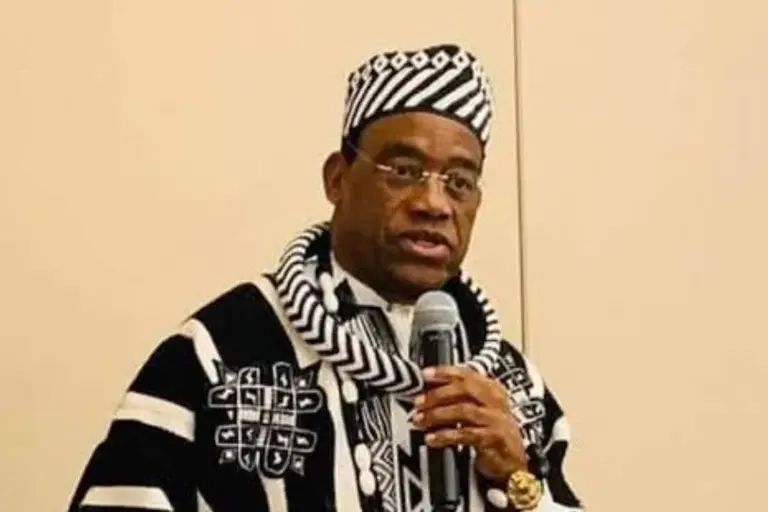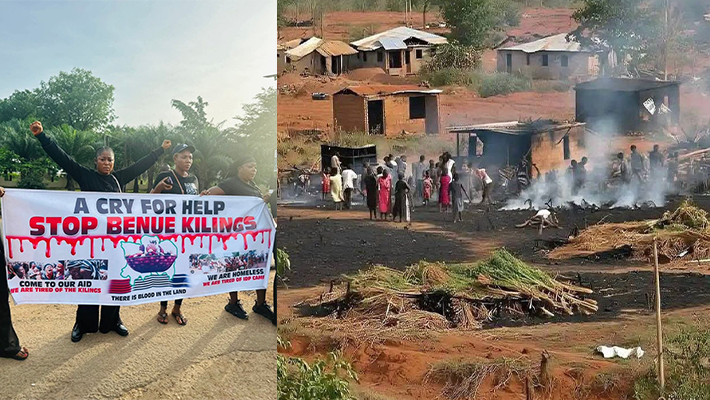The Socio-Economic Rights and Accountability Project (SERAP) has called on President Bola Tinubu to refer the situation in Benue State to the International Criminal Court (ICC), citing ongoing violence, unlawful killings, and alleged violations of international humanitarian and human rights law.
In a letter dated June 21, 2025, and signed by SERAP Deputy Director, Kolawole Oluwadare, the group argued that referring the case to the ICC would align with the president’s stated commitment to justice and accountability.
“Your government has a primary responsibility to ensure accountability and justice and reparations for these grave human rights crimes,” the letter stated. “Referring the situation in Benue State to the ICC would contribute to achieving your expressed commitment to hunt down the perpetrators of the attacks and bring them to justice.”
SERAP also recommended that the government consider extending the ICC’s investigative scope to include other states experiencing similar violence, including Zamfara, Kebbi, Sokoto, Plateau, Taraba, and Borno.
The organisation referenced a statement by Professor James Ayatse, the Tor Tiv and paramount ruler of Benue State, who described the crisis as “a calculated, well-planned, full-scale genocidal invasion and land-grabbing campaign by herder terrorists and bandits.

According to SERAP, any reluctance to refer the situation in Benue to the ICC would continue to embolden perpetrators—state actors and non-state actors alike—to continue to attack the people of the state with impunity. Many of those responsible for these brutal attacks have continued to evade justice.
The group argued that domestic mechanisms have so far proven inadequate to address the scale and complexity of the violence.
“Given the alleged complicity of state actors… domestic avenues have shown to be both insufficient and inadequate to achieve accountability and justice to the victims and their families,” it said.
SERAP noted that under Article 14 of the Rome Statute, Nigeria can refer cases to the ICC without needing to provide initial evidence. “The referral by your government of the situation in Benue to the ICC would bring the situation to the attention of the Prosecutor… and to identify those most responsible.”

The group cited recent attacks in Benue, including killings in Yelewata and Dauda communities that reportedly left at least 100 dead and displaced over 3,000 people, according to the National Emergency Management Agency. Last month, 42 others were killed in Gwer West in suspected herder attacks.
SERAP said it would consider urging other state parties to the Rome Statute to make a referral if the Nigerian government fails to act within seven days.
“Nigeria would not be the first country to refer cases to the ICC,” the group noted, referencing similar actions taken by Gabon, Mali, Uganda, the Democratic Republic of Congo, and the Central African Republic.
The federal government has not yet officially responded to the request.

The letter read in part: “The referral by your government of the situation in Benue to the ICC would bring the situation to the attention of the Prosecutor to determine whether human rights and international crimes have been committed in the state and to identify those most responsible.”

“Any reluctance to refer the situation in Benue to the ICC would continue to embolden perpetrators—state actors and non-state actors alike to continue to attack the people of the state with impunity. Many of those responsible for these brutal attacks have continued to evade justice.
“Given the alleged complicity of state actors in the situation in Benue and other states witnessing cases of serious human rights violations and crimes under international law, domestic avenues have shown to be both insufficient and inadequate to achieve accountability and justice to the victims and their families.
“The ICC jurisdiction extends to those who may be immune from national prosecution, such as the highest political and military leadership that may be complicit in the grave human rights abuses in Benue and elsewhere in the country, including Zamfara, Kebbi, Sokoto, Plateau, Taraba and Borno states.”
“Under Article 14 of the Rome Statute, Nigeria, being a state party to the treaty, can refer the situation in Benue to the ICC prosecutor requesting him to open an investigation into the serious human rights violations and crimes under international law that have been committed in the state.
“The referral of the situation in Benue to the ICC is a relatively easy process, as Article 14 of the Rome Statute does not impose any evidentiary burden on Nigeria. Similarly, any referral by your government will immediately impose a positive obligation on the ICC prosecutor to open an investigation into the situation in Benue or to determine if there is a reasonable basis to do so.
“The referral by your government of the situation in Benue to the ICC also means that the prosecutor would not need to seek Pre-Trial Chamber authorization to open an investigation.
“The ICC prosecutor would have access to relevant admissible evidence on the situation in Benue that may not be easily available to Nigerian security and law enforcement agencies.
“These serious human rights violations and crimes under international law have plagued Benue and several other states for far too long, claiming the lives of many Nigerians and leading to massive displacements.
“The Rome Statute of the ICC provides your government with a unique opportunity to redress the persistent grave human rights abuses in Benue and elsewhere and to ensure justice for victims.
“Justice is not an optional extra. It is an absolutely essential prerequisite for vindicating people’s rights. A referral to the ICC would ultimately strengthen the capacity of Nigeria’s domestic justice system to prevent and address these human rights crimes.
“Nigeria would not be the first country to refer cases to the ICC as countries such as Gabon, Mali, Uganda, the Democratic Republic of the Congo (DRC), and Central African Republic (CAR) have previously referred cases to the ICC.
“We would be grateful if the recommended measures are taken within seven days of the receipt and/or publication of this letter. If we have not heard from you by then, SERAP shall consider requesting the states parties to the Rome Statute to refer the situation in Benue to the ICC, encouraging them to follow the path of similar referrals by some states parties in cases such as Venezuela.
“Referring the situation in Benue to the ICC would demonstrate your expressed commitment to combat the human rights crisis in the state and send a powerful message to those who commit these grave violations of international law and aid and abet or facilitate them that they would be brought to justice.
“Your urgent referral of the situation in Benue to the ICC would also reassure victims and their families that they would receive effective remedies and improve the security and human rights protection of Nigerians in the state.
“The ICC has the jurisdiction to investigate and prosecute those most responsible for the commission of certain international crimes, including war crimes, crimes against humanity, and genocide. The Rome Statute of the ICC contains provisions for your government to refer the situation in Benue to the court.
“SERAP notes your statement expressing concerns that perpetrators of these brutal attacks have not been arrested, and your desire to ensure that ‘the criminals are immediately arrested,’ because ‘the value of human life is greater than that of a cow. We were elected to govern, not to bury people.
“According to our information, at least 100 people have been recently killed in an attack by gunmen on Yelewata and Dauda communities in Benue state. According to Nigeria’s National Emergency Management Agency, at least 3,000 people have been displaced by the violent attacks.

“Many people are reportedly missing while dozens are injured and left without adequate medical care. Many families were locked up and burnt inside their bedrooms. Last month, at least 42 people were shot dead by suspected herders in a series of weekend attacks across Gwer West district in Benue state.
“Since 2019, the clashes have reportedly claimed more than 500 lives in the region and forced 2.2 million to leave their homes. SERAP notes that Nigeria is a state party to the Rome Statute and deposited its instrument of ratification on 27 September 2001.”









